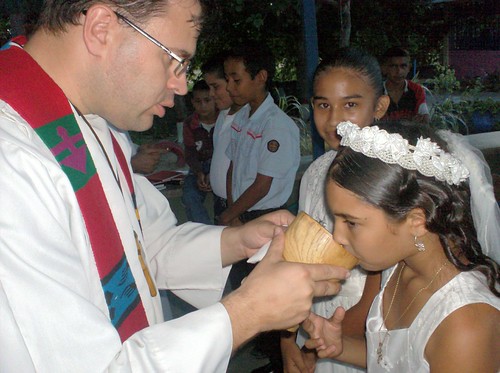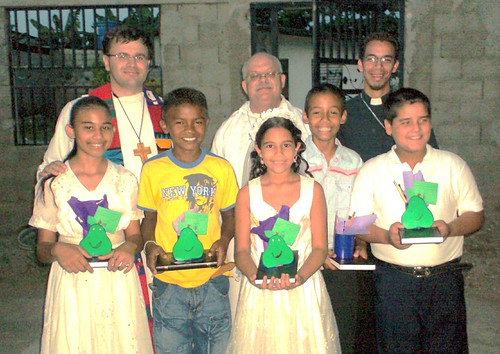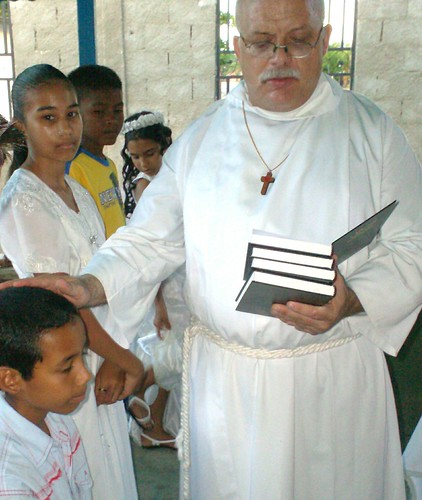
Well, more baptisms and confirmations.
Maria de los Angeles Brito was baptized in La Caramuca, Saturday, Novermber 29, 2008. Maria actually lives in Barinas and attends Corpus Christi Lutheran Church, but her father wanted to attend her baptism and was not able to do so on Sunday, November 30. So Maria was baptized by Pastor Ted Krey on his last official visit to Barinas and we had our second service of Holy Communion for the newly confirmed in our mission. I am happy to report that Sandro Pérez was once again released from the hospital and was able to attend.

The following day there were three baptisms and four confirmations at Corpus Christi. The children baptized were Moisés, Olgret and Ricardo Rivero. Confirmands were Maria Brito, Maria Eugenia Vera, Yelitza Pérez and Luís Eduardo Jimenez. Since Eduardo Flores personally instructed these four young people, it was a great way for him to end his year of vicarage in Barinas.
Eduardo and I will be in Caracas this week, preparing for our ordinations on Saturday, December 13. I have received and accepted a call from the Lutheran Church of Venezuela to serve as a missionary in western Venezuela. I will be based in La Caramuca (and authorized to preach and administer the sacraments there, but also will have the privilege and responsibility of searching for new locations to plant churches (we already have made some contacts in the neighboring state of Apure, for example).

)
Eduardo and our fellow “seminarista” Sergio Maita will be ordained and installed as instructors at the “mini-seminary” that has been established in Caracas. Sergio has completed his vicarage at Cristo Rey (Christ the King) Lutheran Church in the eastern city of Maturin. In addition to teaching new seminaristas (there are six prospects so far for this next year), Eduardo and Sergio will take turns serving the congregations of La Paz (Peace) and La Santa Trinidad (Holy Trinity) in Caracas. Neither of these congregations have full-time pastors.
Pastor Abel García, director of the
Juan de Frias Theological Institute, will be moving from the city of Barcelona, Venezuela, to Caracas in order to supervise the seminary.
The Juan de Frias Theological Institute was founded by Lutheran Church – Missouri Synod missionaries 45 years ago and based on the concept of theological education by extension (TEE). This concept, TEE, was pioneered by
Presbyterians in Guatemala in 1963 as a way of meeting some of the challenges of training pastors within a Latin American cultural context.
After some apparent initial success, the TEE model became widely promoted throughout Latin America by many denominations. But, in Venezuela at least, after 45 years that as a total replacement for a seminary education, TEE leaves something to be desired.
The New Testament does not mandate any specific method for training pastors. We have the example of Jesus teaching the Scriptures in the typical manner of a Jewish rabbi, and selecting 12 men from among those who listened to His teachings. To these men He gave special training for three years before commissioning them as apostles (there were, of course, only 11 by that time, Judas Iscariot having dropped out of the program in a spectacular fashion). So according to the model of our Lord Himself, there should be several years of preparation and examination before one is qualified to receive a call into the public ministry.
This preparation does not involve only “book learning”. We read later in the New Testament that although Saul of Tarsus was highly educated by both Jewish and Greco-Roman standards, approximately 17 years passed between the time of his conversion and when he was ready to embark on his first missionary journey as the Apostle Paul (Galations 1:16-2:1). Preparation for the public ministry is a matter of character formation as well as intellectual development.
Finally, we may note the importance of Biblical instruction starting in early childhood for Paul's protege, Timothy. Before receiving Paul's special training, Timothy was taught the basic doctrines of the Holy Scriptures by his mother and grandmother (2 Timothy 1:5, 3:14-16).
It also is important to consider that the original 12 apostles were devout Jews, too. Jews in the first century A.D., like Jews today, placed a great deal of importance on religious education. So, despite being “simple” fishermen and tradesmen, they did not start from a position of ignorance when Jesus chose them as his disciples.
The modern, North American system of recruiting young men for the seminary presupposes this kind of religious upbringing. The grooming of a pastoral candidate from early childhood on can greatly speed up the process of pastoral formation. In addition, a shared faith motivates a family to make the sacrifices necessary to support the prospective pastor for four years of college plus four years in the seminary.
Beyond the family, Missouri Synod Lutherans historically have recognized the importance of undergirding seminary training with formal Christian education at all levels. This is why the Lutheran Church – Missouri Synod developed the
second-largest network of private preschools, elementary schools and colleges in the United States (surpassed only by the Roman Catholic Church).
One problem throughout much of Latin America is these preconditions for seminary training often do not exist (although there are Lutheran seminaries in the larger, more prosperous countries of
Brazil and
Argentina). In Venezuela, second- or third-generation Lutherans are rare birds. Members of the Lutheran Church of Venezuela often are the only members of their extended families who are practicing Christians of any sort. So the young man who wants to become a pastor may not have a role model within the family to emulate, plus the family may not be keen on the idea of the young man being taken out of the workforce for eight years only to receive wages considerably less than what he could expect in a secular profession that required an equal amount of education.
Likewise, in Venezuela even the Roman Catholic Church does not support the vast network of parochial schools that one sees in the United States.
Then there is in Latin America the wide cultural gap between those who have received some form of higher education and those who have not. This gap exists to some extent in the United States between those who have gone from high school to four-year liberal arts colleges and classmates who ended their formal education with a high school diploma or maybe two years at a technical college or business school, but the difference in Venezuela and other Latin American countries is much more pronounced. Young people who have left their rural village or urban slum for the university may find it very difficult to reassimilate into their old community.
The TEE alternative is to offer theological training to people already recognized as leaders within their communities without requiring them to change their place of residence or abandon their means of earning a living. The students are given printed materials to study on their own time and meet periodically with an instructor to discuss and review what should have been learned. The student can take as many courses as desired and advance at his or her own pace. Involvement with a local congregation is supposed to provide the opportunity for practical application of the knowledge acquired.
Over the past 45 years, the Juan de Frias Theological Institute has offered theological education by extension to all interested parties, with the proviso that one must complete the more basic courses before continuing to a more advanced level. This approach has proved successful in providing laypeople with the basic grounding in Christian doctrine that they may not have received as children or teenagers.
As a method of training pastors, TEE has proved to have a number of shortcomings:
- It assumes an extraordinary degree of self-discipline on the part of the pastoral candidate, assuming that he will devote himself to daily study for an indefinite period while working to support himself and his family, and assuming leadership responsibilities within a local congregation. The result is a high drop-out rate as students become discouraged by these demands. I should also note that in Venezuela it is, in the first place, quite difficult to find a) a job that b) pays enough to support a family while c) allowing one enough free time for night courses and church activities.
- The Lutheran Church of Venezuela is struggling to fill its existing pulpits in the face of an urgent need for pastors to plant new churches. Doors are open that probably will not remain so permanently. Yet training pastors solely by TEE has proven extremely time-consuming. The historical average for achieving the training needed for the pastoral ministry by means of Juan de Frias TEE courses is 13 years.
- The TEE approach does not promote a sense of dedication to the pastoral office. Jesus told Peter, Andrew and the rest to leave their fishermen's nets and follow Him to the ends of the earth, if need be. He also said that heeding His call might well mean leaving family and friends behind (Mark 10:28-31, Lucas 9:59-62). He did not say, “Stay in Capernaum where you can witness to the people with whom you feel most comfortable when you have the time.” According to a Lutheran understanding of mission, not every Christian is called to be a missionary, but all pastors are called to be missionaries wherever the Lord may lead them. It is the responsibility of the whole church to send pastors to preach and (the sacraments, even into the poorest and most remote areas.
While not an inherent flaw in the strategy of theological education by extension, another problem the Lutheran Church of Venezuela must consider is this: LCMS World Missions withdrew nearly all of its ordained missionaries from Venezuela in 2003. Theodore Krey, the last LCMS-sponsored theological educator in Venezuela, will leave in January 2009. The Lutheran Church of Venezuela lacks the financial resources to support theological educators whose only task is to travel regularly to the far corners of the country to teach theological extension courses as the LCMS missionaries did.
Starting in 2006, the Juan de Frias Theological Institute has attempted to balance its TEE offerings with a program of resident or semi-resident study in a central location for pastoral candidates. Eventually this program will be supplemented by regional centers for theological education which will not only serve to teach basic doctrine to the laity, but also recruit pastoral candidates. One of our goals is to establish La Caramuca Lutheran Mission as one of these regional centers.

I began taking Juan de Frias courses during my first year in Venezuela as I realized my continued presence in Venezuela would require at least the capacity to teach Bible classes in Spanish. At first I did not seek the responsibilities of the pastoral office, but eventually I realized that our mission in La Caramuca would require the attention of a resident pastor and that I was the most likely candidate for the position. So it was a great blessing when I was invited by the national church to participate in the pastoral study program in 2007. The program requires a five-year commitment: one year of intensive, resident study; a year of vicarage; and three more years of attending seminars in Caracas and other locations.
This program has allowed me to study for the ministry without interrupting the development of our Lutheran school in western Venezuela.
Over the past five and a half years in Venezuela, I have had the privilege of receiving instruction from the following visiting profesors:
- Dr. Douglas Rutt and Dr. David Coles of Concordia Theological Seminary, Fort Wayne, Indiana.
- José Pfaffenzeller, Concordia Seminary, Buenos Aires, Argentina
- Dr. Rudy Blank, Concordia Seminary, St. Louis.
- Mark Braden, pastor of Zion Lutheran Church, Cleghorn, Wisconsin, and a Greek tutor at the Fort Wayne seminary.
- Paul Brink and Henry Witte, both former missionaries to Venezuela currently serving Latino missions in Iowa.
I am grateful to these people and also to Phil Bickel, another former missionary pastor to Venezuela, and Dale Saville, agricultural missionary in eastern Venezuela, who awakened my interest in mission work as a second career and in Venezuela as a mission field.










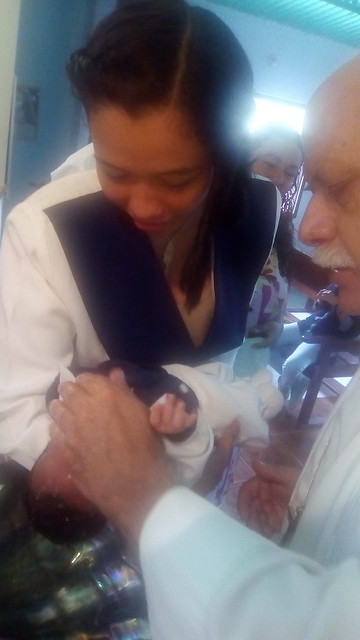
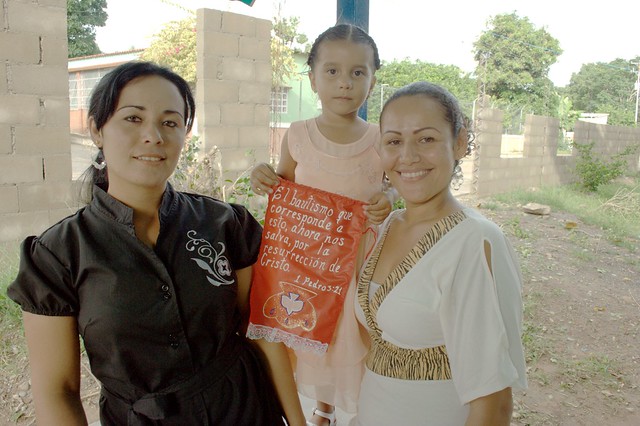
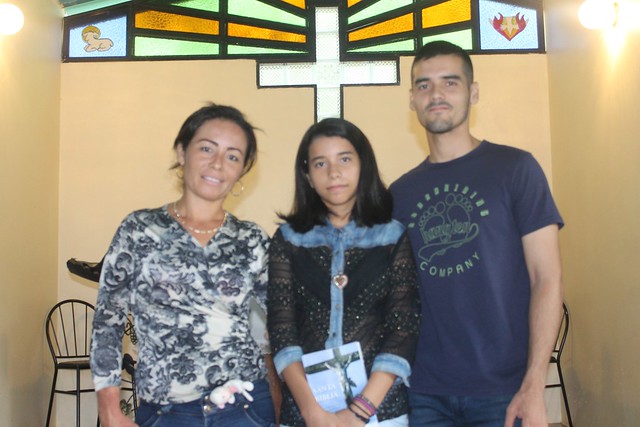
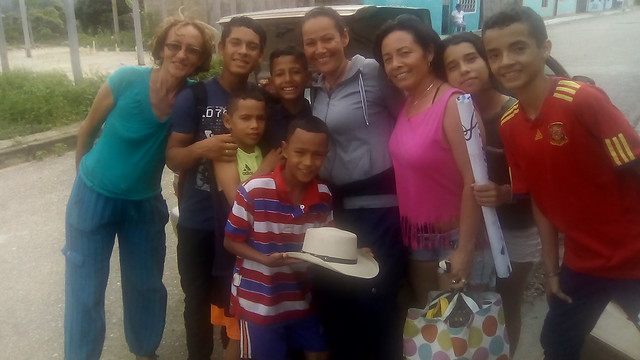
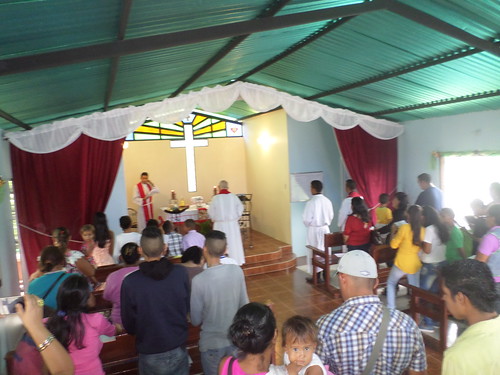
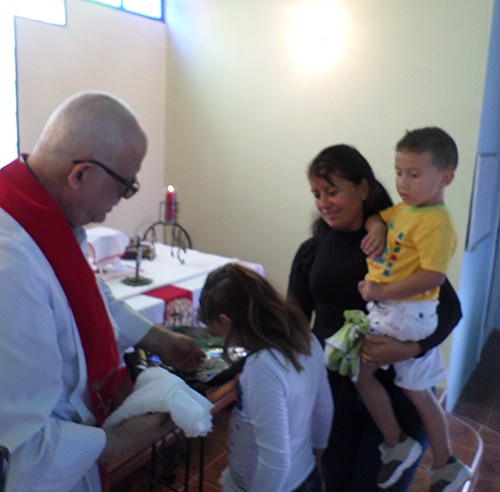
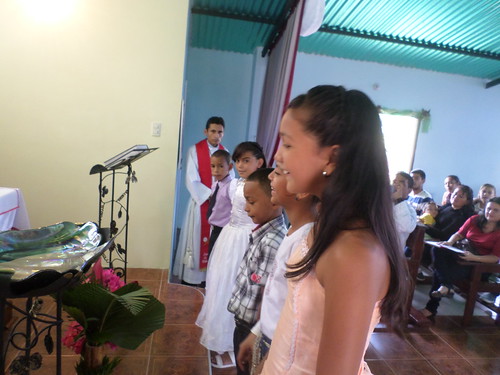

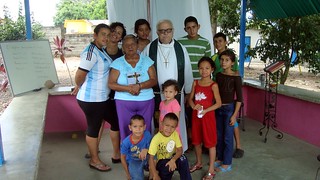




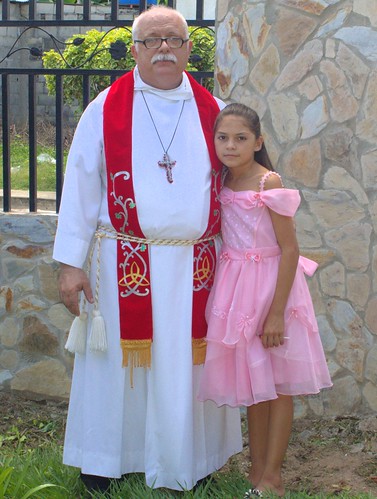
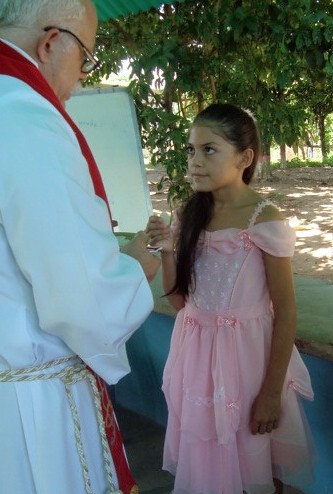
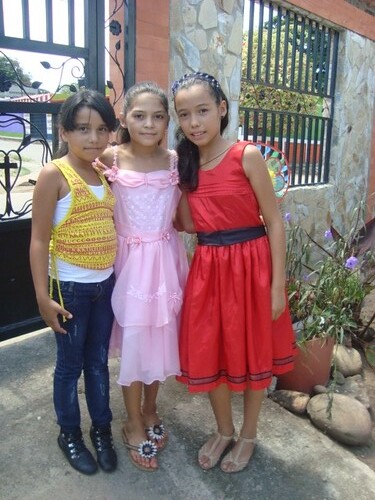











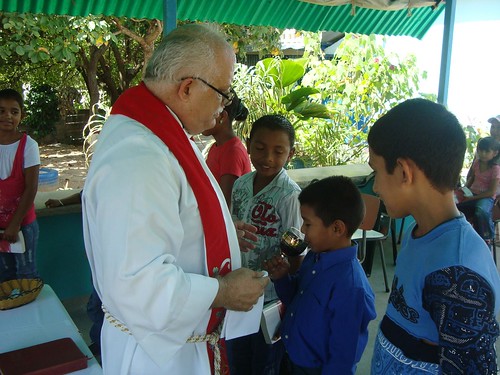
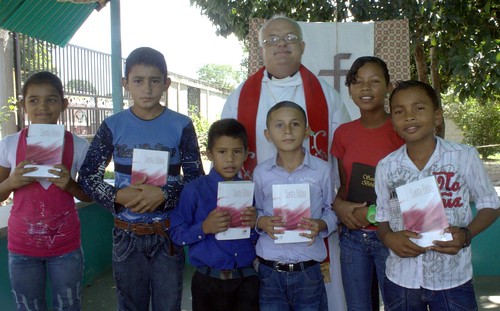

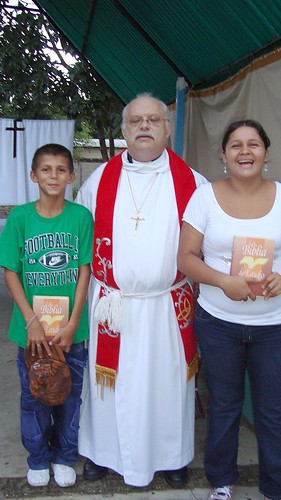

![Reblog this post [with Zemanta]](http://img.zemanta.com/reblog_e.png?x-id=42ca520f-a06c-4ba9-b6a7-d2c62e1c70fa)




